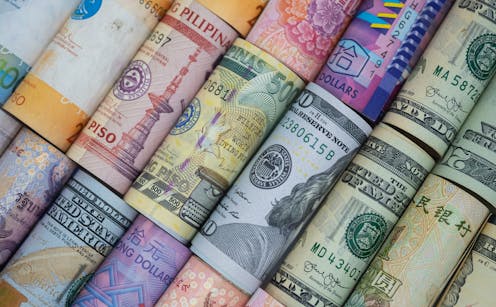Why does money exist?
- Written by M. Saif Mehkari, Associate Professor of Economics, University of Richmond

References
- ^ Curious Kids (theconversation.com)
- ^ curiouskidsus@theconversation.com (theconversation.com)
- ^ Economists like me (scholar.google.com)
- ^ economists have known (www.investopedia.com)
- ^ David Ricardo’s (www.investopedia.com)
- ^ tens of thousands of years (theconversation.com)
- ^ usually through barter (www.investopedia.com)
- ^ CuriousKidsUS@theconversation.com (theconversation.com)
Read more https://theconversation.com/why-does-money-exist-188502







